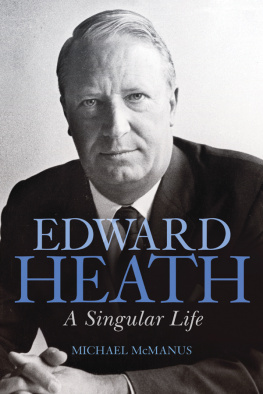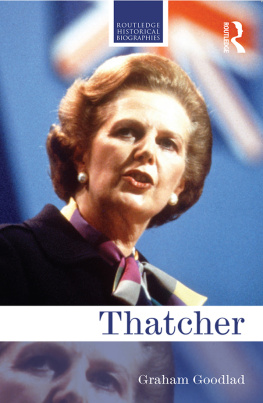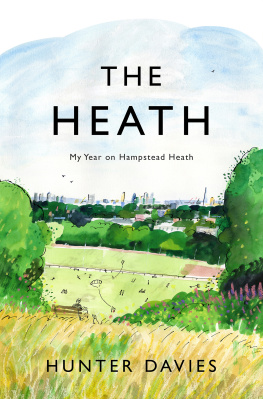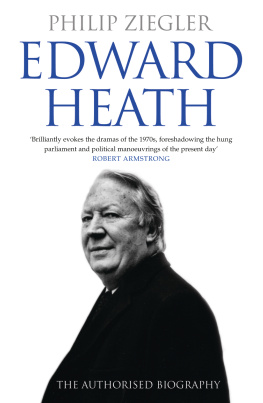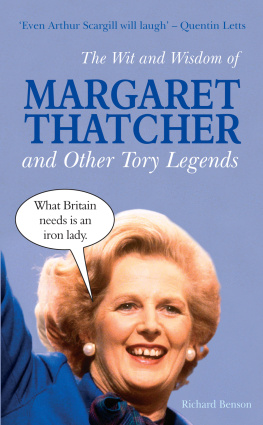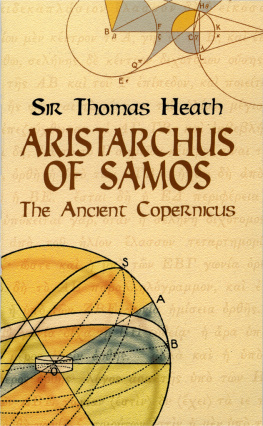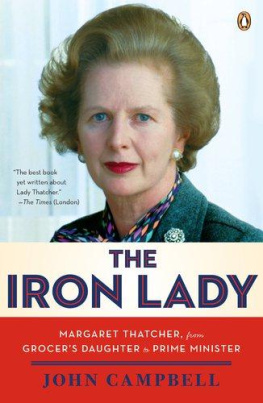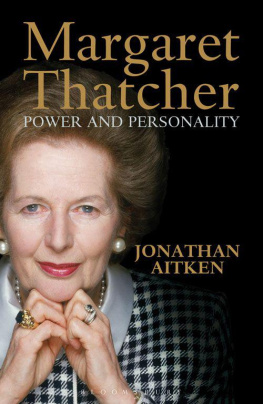EDWARD
HEATH
EDWARD
HEATH
A Singular Life
MICHAEL McMANUS

For David and Paddy Hunt,
with the greatest affection, respect and gratitude
Contents

Introduction

D uring its eighteen-month gestation period, this book has been through a considerable metamorphosis. It has always been envisaged as a serious publication, its principal purpose being to mark the centenary of the birth, on 9 July 1916, of Edward Richard George Heath privy counsellor and Knight of the Garter, wartime soldier and peacetime statesman, competitive sailor and talented amateur musician, and one of the most controversial politicians of the post-war era but the proposal I originally had in mind was for a form of Festschrift. A collection of essays collected in accordance with such a solidly European tradition would have appealed to its subject, but the quality and volume of material generously submitted by so many friends and colleagues necessitated a fundamental rethink. So the book you hold is rather different from the one originally intended.
The consistent, unyielding vision motivating all the hard work the driving purpose, if you will has not been an aspiration to detail, yet again, the already well-documented career of Ted Heath, but rather to capture and vividly evoke the complex, multi-faceted essence of the man his relentless sense of purpose, his idiosyncratic (and often highly counter-productive) sense of humour, his strengths, quirks, weaknesses and foibles. In short, I wanted to explain what made him tick.
Peter Walker was a protg of Sir Edwards who ran his leadership election campaign in 1965 and stuck by him through thick and thin, willingly accepting the consequent opprobrium as a price worth paying. Even he once said, In the years I have known him, there have been only four or five occasions when I have penetrated his deepest thoughts. He is a very self-contained person and also a fairly shy one. So Ted Heath is not the easiest subject for a historian or biographer even one who knew him well and worked closely with him for five years, as I did.
Around sixty-five people who knew him personally have contributed to this book, each in his or her distinctive voice. The intention behind presenting so much primary material is to enable readers to form their own opinions of Heath, digesting and assimilating the evidence and unlocking the conundrum for themselves.
While this book is not a biography, it certainly does cover all the main stations of his life. Where the contributions of others do not join up neatly, or require illumination or counterpoint, I have filled in the gaps. I have also written a full, first-hand account of my own five-year period running the private office of Sir Edward, or The Boss, as we called him including the unforgettable experience of running through his entire life with him, for the purposes of producing his 1998 memoir, The Course of My Life.
I have also, reluctantly and with no little sense of distaste, sought to address the nebulous and, to me, incredible allegations that have been made against Heath in 2015 and 2016, in connection with the supposed abuse of under-age male persons. As I shall make clear, I personally do not believe Heath ever had sexual relations with anyone and I cannot imagine ever being persuaded otherwise. He seems to have decided, early in life, that he would manage independently and on his own in his personal life a vow he never appears to have broken.
As this book reveals, in his political life Edward Heath sought always to be analytical and rational; and he possessed a rare gift for cutting incisively through copious briefings and masses of information, to the very heart of the matter. He could therefore appear cold and, to the less thick-skinned of those around him, positively rude. Certainly he struggled to express the softer emotions, but he was capable of great generosity and also of expressing affection to those he loved.
So, here he is for fans and critics alike that great lighthouse in Roy Jenkinss memorable phrase summoned back to life by the recollections of those who knew him best.
CHAPTER ONE

Early life (19161950)
T he life of Edward Richard George Heath was remarkable by any standards, but it began unremarkably. He was born in Broadstairs on the Isle of Thanet. His father William was a jobbing builder who became a small businessman and his mother Edith had been a ladys maid. William was a fairly laid-back character with an eye for the ladies, whereas Edith was fiercely ambitious and determined that Edward should want for nothing.
With the recent death of Denis Healey, there is no one left who knew the young Teddy Heath but, fortunately, many interviews exist with those who did. They give a consistent flavour of a serious and ambitious young man who drove himself very hard indeed; and who was generously supported by his parents, who denied themselves many aspects of material comfort in order to provide for him as he progressed through grammar school and university.
Heath and his younger brother John were very different, but remained close until John died, in his early sixties, in 1982. Their father William once said: Johnny would no sooner get to the bottom of the street than he fell into a tar barrel or something. Teddy could be out for hours and hours, and still come home as bright as a new pin. In another interview he said: Teddy has a will of iron. He read and read about politics. His bedroom was like a library. When he was reading or for that matter playing music to try to talk to him was like speaking to a brick wall. Then suddenly he would stop what he was doing and say, Lets go for a walk, mummy. And the rest of us would have to stop what we were doing and go out with him.
One of Heaths school friends from Thanet days, Ronald Whittell, had this to say about young Teddy and the household in which he grew up:
Mrs Heath... was one of the most determined women Ive ever known. She used to complain about Teddy sitting up in his bedroom reading instead of spending more time in boyish pursuits. It was a decided shock to both his parents when he turned out the way he did they hadnt expected such a brilliant child... He never tried for popularity. He wasnt actively liked or actively disliked. He was respected and accepted, though a little bit intolerant... He seemed to achieve maturity of character earlier than others.
The only time I saw tears in Heaths eyes was when Michael Cockerell, that brilliant BBC film-maker, showed him a montage of images of his mother. Yes, so beautiful, he murmured gently (Michael also asked him whether he had ever changed a nappy, which elicited a far less revealing indeed rather nonplussed response). Edith Heath drove herself very hard, not least to provide for her beloved elder son, and when her terminal cancer manifested itself while Heath was on a trip to the US as a newly-elected Member of Parliament, she could hardly bring herself to reveal her condition to her family. William Heath remarried twice and all three of his wives were Mummy to him and to his sons, but Edith was irreplaceable to Heath. Although he was clearly delighted his father lived to see him become Prime Minister, we all knew it was his mother who made him the man he was.
John Heath married twice and his first (by this point ex-) wife, Marian Evans, wrote a book in 1970 entitled
Next page
